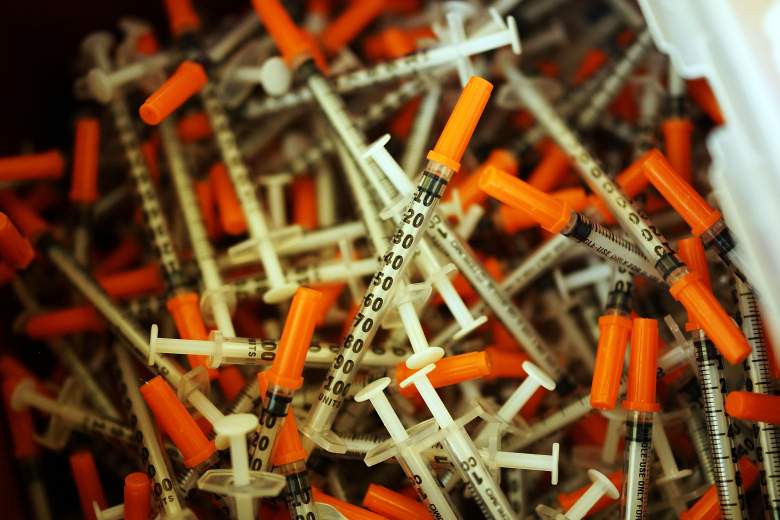
The Gloucester, Massachusetts, Police Department will help drug addicts kick the habit if they turn in their paraphernalia. (Getty)
In wake of Indiana’s HIV outbreak — 150 new cases — the top cop in Gloucester, Massachusetts, has promised to instantly help any smack addict who wants to kick the habit. All they have to do is walk to the police station and turn in their needles and spoons.
Even better, Chief Campanello said his department will not arrest anyone who walked into the police station voluntarily.
Here’s what he posted on the Gloucester PD Facebook page last week:
On Saturday, May 2, the City held a forum regarding the opiate crisis, and on how Gloucester has many resources for help. We are poised to make revolutionary changes in the way we treat this DISEASE. Your Police Department vowed to take the following measures to assist, beginning June 1, 2015:
* Any addict who walks into the police station with the remainder of their drug equipment (needles, etc) or drugs and asks for help will NOT be charged. Instead we will walk them through the system toward detox and recovery. We will assign them an “angel” who will be their guide through the process. Not in hours or days, but on the spot. Addison Gilbert and Lahey Clinic have committed to helping fast track people that walk into the police department so that they can be assessed quickly and the proper care can be administered quickly.
* Nasal Narcan has just been made available at local pharmacies without a prescription. The police department has entered into an agreement with Conleys and is working on one with CVS that will allow anyone access to the drug at little to no cost regardless of their insurance. The police department will pay the cost of nasal narcan for those without insurance. We will pay for it with money seized from drug dealers during investigations. We will save lives with the money from the pockets of those who would take them. We recognize that nasal narcan is not the answer, but it is saving lives and no one in this City will be denied a life saving drug for this disease just because of a lack of insurance. Conleys has also agreed to assist with insurance requests from those who do not have any.
* I will personally travel to Washington DC, with the support of Mayor Theken, the City Council, Sen. Bruce Tarr, and Rep. Ann-Margaret Ferrante, on May 12 and 13. There I will meet with Senators Elizabeth Warren and Ed Markey and Congressman Seth Moulton. I will bring what Gloucester is accomplishing and challenge them to change, at the federal level, how we receive aid, support and assistance. I will bring the idea of how far Gloucester is willing to go to fight this disease and will ask them to hold federal agencies, insurance companies and big business accountable for building a support system that can eradicate opiate addiction and provide long term, sustainable support to reduce recidivism.
I am asking for your help. Like this post, send it to everyone you can think of and ask them to do the same. Speak your comments. Create strength in numbers. I will bring it with me to show how many voters are concerned about this issue. Lives are literally at stake. I have been on both sides of this issue, having spent 7 years as a plainclothes narcotics detective. I have arrested or charged many addicts and dealers. I’ve never arrested a tobacco addict, nor have I ever seen one turned down for help when they develop lung cancer, whether or not they have insurance. The reasons for the difference in care between a tobacco addict and an opiate addict is stigma and money. Petty reasons to lose a life.
Please help us make permanent change here in Gloucester.
Thank you,
Chief Campanello
The chief made his drastic announcement in the wake of Indiana’s HIV outbreak that’s linked to shared needles.
According to www.in.gov,
As of May 7, 2015, there have been a total of 150 HIV positive tests, which includes 149 confirmed and 1 preliminary positive cases related to the outbreak in southeastern Indiana.
The Guardian newspaper reported, “Though Indiana is very publicly and desperately in crisis right now, the addiction issue is a national one. Overdose deaths are the number one cause of injury-related death in the U.S., according to the Centers for Disease Control and Prevention, and deaths from both prescription painkillers and heroin quadrupled between 1999-2000 and 2013. These increases go hand in hand—surveys done by the National Institute on Drug Abuse have found that half of young heroin users report first having abused prescription opioids.”